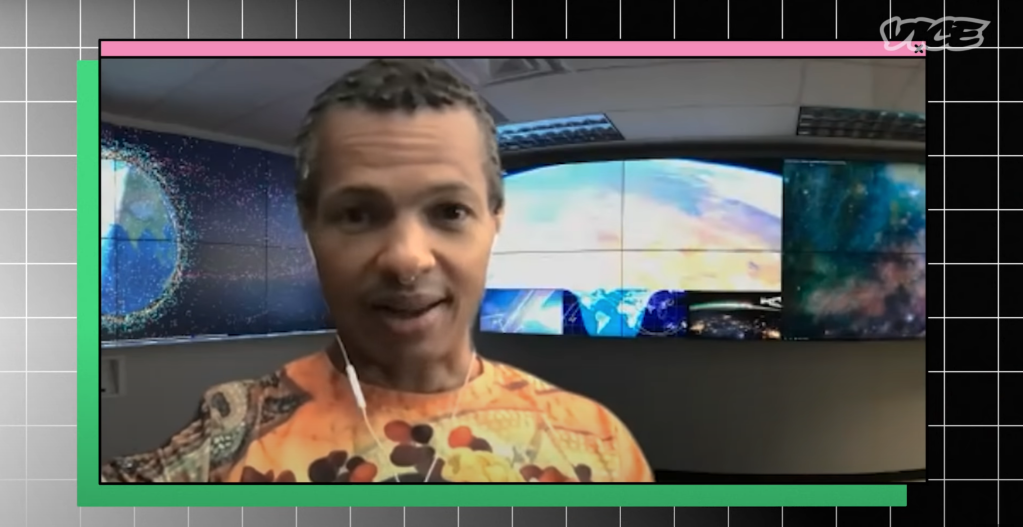It’s been more than 60 years since humans launched the world’s first satellite, Sputnik, into outer space. While we’ve accomplished a lot of amazing feats off Earth since then, we’ve also discarded tons of trash, leading to an orbital environment that has become contaminated with 26,000 junk objects—and that’s just the debris that’s large enough to track.
As a leading astrodynamicist and expert on space debris, Moriba Jah is dedicated to finding new strategies to track the ever-growing volume of orbital trash and mitigate the substantial threats it poses to off-Earth infrastructure.
Videos by VICE
“We could get to the point where some of these [orbital] highways, their capacity is saturated; there may be some whose capacity is already saturated,” said Jah, who is an associate professor of aerospace engineering and engineering mechanics at the University of Texas at Austin, in an episode of Motherboard’s “Space Show” posted on Wednesday.
“At that point, we’re just going to start suffering lots of losses of things that we care about that are providing services and capabilities,” he added. “We won’t be able to use [space] as we’re using it anymore, so I think that that’s a real threat or hazard, kind of like ‘the tragedy of the commons’.”
Considering that satellites are involved in everything from global positioning systems (GPS), to telecommunications, to banking, to climate change observations, space debris is capable of wreaking havoc on all kinds of networks that affect our daily lives. Moreover, as space becomes more crowded in the coming years, trash could even threaten the lives of astronauts on the International Space Station and other orbital habitats.
“I see a real risk in loss of human life as a consequence of debris,” Jah said. “That hasn’t happened yet, but I do have friends that are astronauts and they all have stories about hearing things on the outer hull of the space station because of pieces of debris, or seeing something go by that they didn’t get any warning about that could have smacked against the station.”
Fortunately, Jah and his colleagues around the world are pioneering comprehensive new systems to identify and track the growing detritus in this outer space trash heap, while also working on ingenious technologies to remove and deorbit dangerous debris. For Jah, these pursuits are not only his passion as an astrodynamicist, but his obligation as a “space environmentalist.”
“Everything is interconnected—I’m a ‘butterfly effect’ kind of guy,” he said. “We have lands, oceans, air, and space. We have a system of systems, and it’s all linked in some way. Space environmentalism is really about environmental protection, environmental impact, and ecological sustainability that connects all these different domains, and brings in space.”
More
From VICE
-

(Photo by Chris Marion/NBAE via Getty Images) -

Screenshot: Epic Games -

(Photo by Frederick M. Brown/Getty Images)

